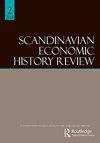近代早期芬兰的平民和军事供应
IF 0.5
Q4 ECONOMICS
引用次数: 0
摘要
后者是从上世纪90年代开始的。虽然与其他四个国家相比,我们可能对玻利维亚的困境了解得较少,但该卷的地理覆盖范围相当好,这有点令人失望,因为它似乎是表现最差的国家。引言在将作品与一些更广泛的文献联系起来方面起着有益的作用。但是,它本可以为被比较的国家提供一个更有力的经验框架,特别是以一些有关其业绩和部门分布的比较统计数字的形式。有些材料是在不同的章节中出现的,但在开始的时候做一个概括性的介绍会很有帮助。然而,结论明确强调了该研究的许多主要发现。帝国和准帝国关系在塑造更广泛的环境和一系列自然资源产业运作所反对的制度方面所起的作用,可能是一个更广泛的特征。最后,虽然章节总体上呈现得很好,但对于语法和语法错误的文字编辑可能会更尖锐一些。但总的来说,本书对理解不同资源型经济体的不同困境做出了重要贡献。这是在资源诅咒学派的棺材上又钉了一颗历史钉子。对于一些经济体来说,自然资源显然是一种福利,但总体信息是正确的,“自然资源不是命运”(第6页)。正如这项研究非常有力地证明的那样,还有许多其他因素推动着国家的经济发展。本文章由计算机程序翻译,如有差异,请以英文原文为准。
Civilians and military supply in early modern Finland
the latter from the 1990s. Geographical coverage of the volume is pretty good although perhaps we learn less about the plight of Bolivia than the other four nations, which is a bit disappointing given it appears to be the poorest performer. The introduction plays a useful role in connecting the work to some of the broader literature. However, it might have provided a more robust empirical framework for the nations being compared, particularly in the form of some of the relevant comparative statistics of their performance and sectoral spread. Some of that material comes out in different chapters but an overarching presentation at the beginning would have been helpful. The conclusion, though, was clear in highlighting many of the principal findings of the study. One area that might have featured more extensively is the role of imperial and quasi-imperial relations in shaping the broader environment and sets of institutions against which the natural resource industries operated. Finally, while the chapters were generally well presented, copy editing for errors in syntax and grammar could have been somewhat sharper. Overall, though, this book constitutes an important contribution to understanding the contrasting plight of different resource-based economies. It is a further historical nail in the coffin of the resource curse school. For some economies natural resources have clearly been a boon, but the overall message is the correct one, ‘Natural resources are not destiny’ (p. 6). There are many other factors driving the economic development of nations as this study has very ably demonstrated.
求助全文
通过发布文献求助,成功后即可免费获取论文全文。
去求助
来源期刊

SCANDINAVIAN ECONOMIC HISTORY REVIEW
ECONOMICS-
CiteScore
1.60
自引率
16.70%
发文量
20
期刊介绍:
Scandinavian Economic History Review publishes articles and reviews in the broad field of Nordic economic, business and social history. The journal also publishes contributions from closely related fields, such as history of technology, maritime history and history of economic thought. Articles dealing with theoretical and methodological issues are also included. The editors aim to reflect contemporary research, thinking and debate in these fields, both within Scandinavia and more widely. The journal comprises a broad variety of aspects and approaches to economic and social history, ranging from macro economic history to business history, from quantitative to qualitative studies.
 求助内容:
求助内容: 应助结果提醒方式:
应助结果提醒方式:


